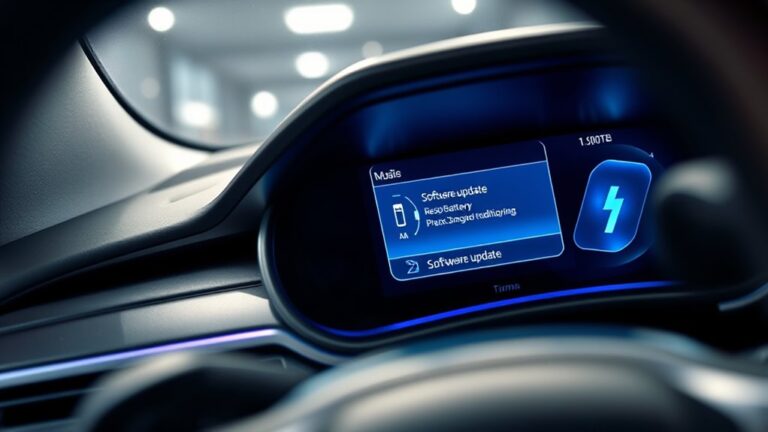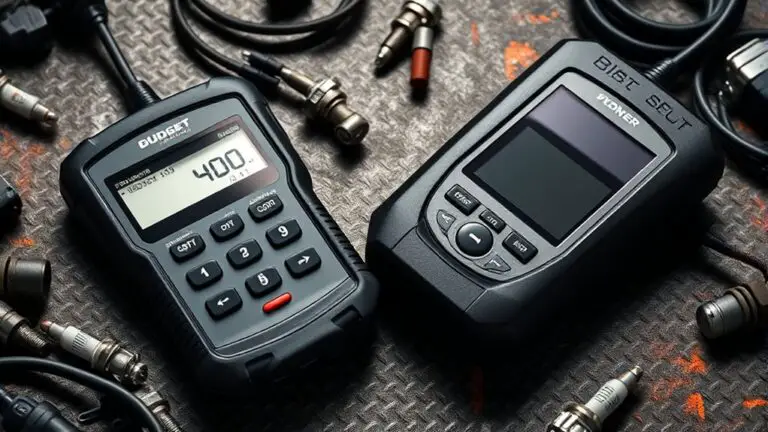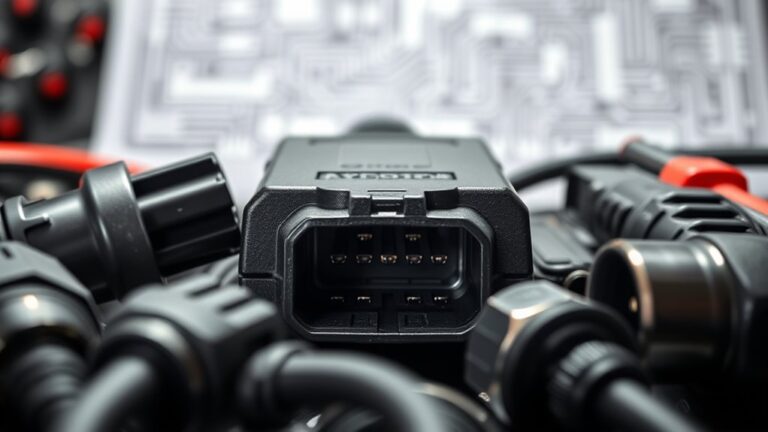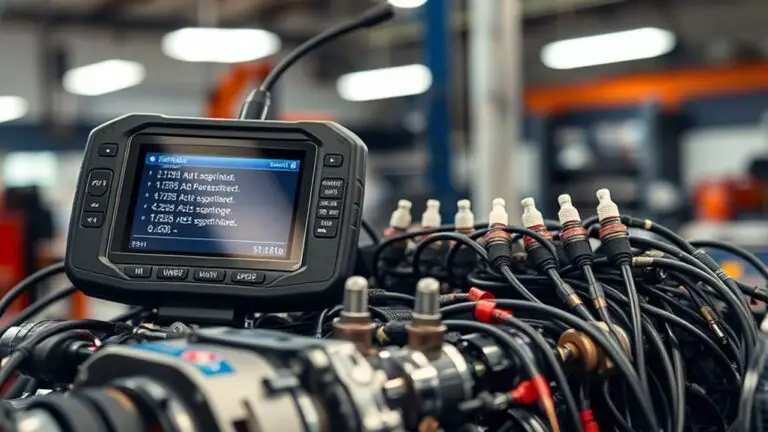Does Slamming A Car Door Damage It? [Short Ans.]
Have you ever slammed your car door shut in a hurry, only to wonder if it caused any damage? While it may seem like a harmless action, slamming a car door can actually cause some unwanted consequences. Car doors are designed to close smoothly and securely, but excessive force can cause stress on the hinges, seals, and locks. Over time, this can lead to wear and tear that may compromise the safety and security of your vehicle.
Additionally, slamming a car door can also cause vibrations that can loosen or damage other components in the car, such as the rearview mirror or the electronic systems. This can result in costly repairs down the road.
In this article, we’ll explore the potential effects of slamming a car door, and what you can do to prevent damage to your vehicle. Whether you’re a new driver or a seasoned pro, it’s important to be mindful of how you handle your car doors to ensure the longevity and safety of your car.
Short Answer:
Yes, slamming a car door can potentially cause damage to the hinges, seals, locks, and other components of the car. It can also create vibrations that can loosen or damage other parts of the car, leading to costly repairs.
What Happens When You Slam A Car Door?
When you slam a car door, it creates a powerful force that can cause a variety of problems. The impact can damage the hinges that hold the door in place, leading to misalignment and difficulty in opening or closing the door. Slamming can also damage the seals that surround the door, allowing dust, water, and air to seep into the car.
This can cause rust, mold, and other problems that can affect the car’s overall performance. Additionally, the vibrations caused by slamming can loosen other components of the car, such as the dashboard, seats, and even the engine. Over time, these problems can worsen, leading to costly repairs and decreased resale value.
Is It Wrong To Yell At Someone For Slamming Your Car Door?
Yelling at someone for slamming your car door may not be the most effective or appropriate way to handle the situation. While slamming a car door can potentially cause damage to the car, it is important to approach the situation calmly and try to find a resolution without escalating the situation.
If someone has accidentally slammed your car door, it is best to calmly explain the potential damage it can cause and ask them to be more careful in the future. If someone has intentionally slammed your car door, it is important to assess the situation and determine if it is safe to confront them. In either case, communication and conflict resolution skills can help prevent further damage or harm to the car or people involved.
It is important to remember that the car is just a material possession, and while it is frustrating when it gets damaged, it is not worth damaging relationships or escalating conflicts over it.
Why Do People Slam Car Doors?
People may slam car doors for various reasons, such as frustration, anger, carelessness, or lack of awareness. For instance, when in a rush, someone might unintentionally slam the door or be unaware of how hard they are closing it. Also, if the car door doesn’t shut properly, some people might slam it to ensure it is closed.
In other cases, people might slam car doors out of frustration or anger towards someone or something else, and the car door becomes a casualty of their emotional outburst. Slamming the car door repeatedly can also be a habit for some people, which may result in damage to the car’s door frame, hinges, and other components over time. It is always advisable to close car doors gently to avoid unnecessary damage and potential problems in the future.
Can Car Doors Withstand Frequent Slamming?
Car doors are designed to withstand normal use, including opening and closing them with an average amount of force. However, excessive or frequent slamming can lead to damage over time. Slamming a car door can cause misalignment of the door or its components, including the hinges, latch, or striker. This can result in the door not closing properly, creating gaps that allow water, dust, and air to enter the car’s interior.
Additionally, slamming the door can cause dents, scratches, and other cosmetic damage to the door or the surrounding areas. These issues can affect the car’s safety, security, and resale value. Therefore, it’s best to avoid slamming car doors whenever possible and to handle them with care to prevent damage.
How Bad Is It To Slam Your Car Doors?
Slamming car doors can have a negative impact on the vehicle over time. It can cause several issues, such as misaligned doors, broken hinges, and damage to the door frame or weatherstripping. Slamming the door can also lead to cracks or chips in the glass windows and mirrors.
Repeated slamming can cause the latch mechanism to loosen or break, leading to difficulty in closing or opening the door. In severe cases, the door may even pop open while the car is in motion, posing a significant safety risk to the driver and passengers.
Furthermore, slamming the door can cause vibrations throughout the car, potentially damaging sensitive electronics and causing rattling noises.
Therefore, it’s best to avoid slamming car doors whenever possible to prevent any potential damage to the vehicle. Instead, close the door gently but firmly to ensure proper operation and longevity of the car’s components.
How To Prevent Car Doors From Being Slammed?
Install soft-close devices
Soft-close devices can be added to car doors to prevent them from being slammed. These devices use a hydraulic mechanism to slow down the closing of the door, preventing it from slamming shut.
Close doors gently
The easiest way to prevent car doors from being slammed is to close them gently. Encourage passengers to close the doors with care and avoid slamming them shut.
Educate passengers
Sometimes passengers may not realize that they are slamming the doors. Educate them on the potential damage that can be caused and ask them to close the doors gently.
Check the door alignment
Misaligned doors can be more prone to slamming shut. Check the door alignment regularly and make any necessary adjustments to ensure the door closes smoothly.
Be mindful of weather conditions: Strong winds can catch car doors and slam them shut. Be mindful of weather conditions when closing car doors and try to shield the door from the wind to prevent slamming.
FAQ
Q: Does slamming a car door damage it?
A: Slamming a car door repeatedly can cause various damages over time, such as loosening the hinges, denting the body, or damaging the latch mechanism. The severity of the damage depends on the force of the slam and the condition of the door. Slamming a car door once in a while may not cause immediate damage, but doing it frequently can lead to expensive repairs in the long run.
Q: Can car doors withstand frequent slamming?
A: Car doors are designed to withstand normal use, which includes opening and closing without any issues. However, frequent slamming can cause damage to the door over time. If you slam your car door often, you may notice that it becomes more difficult to close or that the hinges become loose.
Q: How bad is it to slam your car doors?
A: Slamming your car doors regularly can lead to various issues, such as dents, scratches, misaligned hinges, or a damaged latch mechanism. These issues can lead to costly repairs and reduce the overall value of your vehicle. Additionally, slamming car doors can be disturbing to passengers or people nearby and can be a sign of impatience or aggression.
Q: How to prevent car doors from being slammed?
A: To prevent car doors from being slammed, you can practice proper door etiquette by gently closing the door and using the handle to close it rather than pushing it with your hand. You can also add door stoppers or check straps to limit the door’s opening and prevent it from slamming shut. It’s essential to teach children and passengers to be mindful of how they close the doors to prevent damage and ensure the longevity of your car’s doors.




